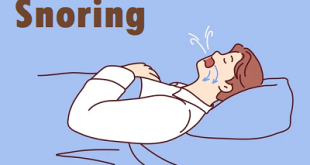Definition
Savant syndrome is the rare disease that is also defined mental disorders. However, the syndrome is more of special skill than a normal disorder. However, the fact remains that the syndrome is witnessed among people who are suffering from Autism. The record shows that half of the Savant syndrome patients are Autism patient as well. Autism is generally defined by mental disabilities or retardedness. However, Savant syndrome is having special skills like mathematics, arts, music, and others in a tremendous amount.
The most common ability of the patient suffering from Savant syndrome is the calendar calculations. One can easily calculate which date will fall on which day, and that is an exceptional power. Historically the disease has been linked with supernatural powers like reincarnation and others; however, the medical world explains it with injury or damage to the certain part brain which results in the Savant syndrome. However, the exact reason for the syndrome is not defined.
History
In 1887, Dr. J. Langdon Down first gave the name “idiot savant” to what we know today as people with Savant syndrome. At the time, the term “idiot” was an accepted classification of mental retardation. The term “savant”, meaning knowledgeable person, is derived from the French word “savoir” meaning “to know”. However, over many decades, the term “Savant syndrome” has grown into popular use due to the idiomatic and negatively connoted nature of the word “idiot”. The term “idiot savant” was quite inaccurate as the majority of all the reported cases had IQ levels of 40 or above.
Epidemiology of Savant Syndrome
- Approximately one in 10 persons with autistic disorder have some savant skills. In other forms of developmental disability, mental retardation or brain injury, savant skills occur in less than 1% of such persons (approximately 1:2000 in persons with mental retardation).
- As it turns out approximately 75% of persons with savant syndrome have autistic disorder, and the other 25% have some other form of developmental disability, mental retardation or brain injury or disease. Thus not all savants are autistic, and not all autistic persons are savants.
Types
There are different classifications of the syndrome of Savants. Some authors refer to three different courses:
Savants with talent
Under this subtitle, those who present spectacular abilities accompanied by a high degree of cognitive disability are usually categorized.
Normally, savants with autism spectrum disorders associated with intellectual disability are part of this group.
Prodigious savants
Under this term, we classified those individuals who present a remarkable feature in the I. Q, Both in high capacities and in intellectual disability
They tend to be geniuses, out of the ordinary. Stand out in all their capacities.
Savants of minutiae
This term is reserved for individuals with very restricted features of Savant’s syndrome.
Some have good visual or auditory memory. Despite having difficulties in establishing social relationships, they are usually specialists in some areas, such as sports.
Risk factors of Savant Syndrome
Genetic Predisposition being the main cause, hereditary mental disorder becomes the main risk factor. Other risk factors include:
- Asperger syndrome in the family
- Family History
- Mental Illness in family
- Prematurity in infants (gestation period <35 weeks)
- Parents maturity (Father: over 49, Mother: over 40)
- New-born baby weight remains less than 2500 g
- Congenital Malformations
- Newborn’s postpartum resuscitation
- Male sex (new-born)
The effect of unfavorable ecological environment that leads to mutations of the genes and deficiency of vitamin D
Causes
- The origin of Savant syndrome is still not known with precision.
- Some specialists associate the development of these exceptional characteristics with abnormalities and specific genetic alterations.
- Different investigations have related the abilities of the Savants with chromosome 15 associated alterations, as in the case of the Prader Willi syndrome.
- However, others advocate brain processes that compensate for the brain, structural or functional abnormalities.
Symptoms of Savant Syndrome
The symptoms and the signs of Savant syndrome can be found from the childhood days. The disease is termed as both blessing and curse. At one time the patient is the sufferer of abilities and other time they are abnormally capable of doing something exceptional. The frequent and observed symptoms of the Savant syndrome are listed below.
Savant Syndrome is sometimes seen in people with Down Syndrome
The children suffering from Savant syndrome tend to show mental retardedness. The abnormal behavior and irrelevant activities show the signs of mental disorder. However, they do not show severe signs of mental disorder and can be controlled.
The children generally have some special powers and ability. It has been noticed that people who are having Savant syndrome are generally super talented on some specific field despite having a very low IQ level.
Complications of Savant Syndrome
- Autism is often associated with different disorders and mental illness resulting in communicative difficulties, socialization etc. that hinders regular life.
- It also prevents a child’s growth and results in depression, loneliness, self-realization, and other problems.
- Due to improper growth, these children face difficulties to join the society. In various surveys, it is seen that people suffer from the thoughts of suicide.
Diagnosis
- The most common is that Savant’s syndrome is identified during the infant stage through a clinical and psychological approach.
- This is fundamentally based on the identification and definition of the characteristics of those affected, both possible developmental delays and exceptional abilities.
Treatment
Medical: The client was diagnosed as mentally subnormal. He was prescribed major tranquilizers and antiparkinsonian drugs, a regime which has changed little over the years. He responded well. At irregular intervals, disturbed behavior emerged, but these incidents became more isolated.
Social: The client attended regularly the sessions at the hospital Social Centre, where he was involved as much as possible in the social, leisure and recreational programmes.
Educational: For a period of time, the client attended a special class organized by a remedial teacher for mentally handicapped patients at the hospital. At times the teacher complained of his disruptive behavior.
Occupational Therapy: In general, the therapeutic focus in the long-term psychiatric treatment of a mentally subnormal client is on gross motor skills; fine motor skills; perceptual motor skills; activities of daily living; personal-social skills and communication. Important aspects like neurodevelopmental sequencing, vocational exploration and habilitation are also taken into consideration
Prevention of Savant Syndrome
There is no known way to prevent savant syndrome.
 Diseases Treatments Dictionary This is complete solution to read all diseases treatments Which covers Prevention, Causes, Symptoms, Medical Terms, Drugs, Prescription, Natural Remedies with cures and Treatments. Most of the common diseases were listed in names, split with categories.
Diseases Treatments Dictionary This is complete solution to read all diseases treatments Which covers Prevention, Causes, Symptoms, Medical Terms, Drugs, Prescription, Natural Remedies with cures and Treatments. Most of the common diseases were listed in names, split with categories.







